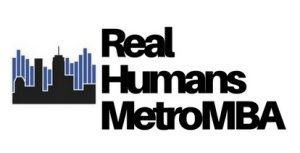Where Should You Go? The Benefits of a Mid-Tier MBA

You have an MBA acceptance letter from both Harvard Business School and Cornell SC Johnson. Which do you choose?
Your gut reaction might be to choose Harvard’s top-ranked MBA program without a second’s pause. After all, aren’t business school rankings—like those compiled by the Financial Times and U.S. News & World Report—the most important consideration when choosing your MBA program?
In some cases, you might be right. If you’re most interested in reputation, then ranking is all important. However, there are many times when rankings should be taken with a grain of salt. They tell a story, but not the whole story, especially when it comes to you as an individual candidate.
Just because a specific school is top-ranked, does not mean it should be the top rank for you. Many mid-level MBA programs are just as impressive and could be a better fit for you depending on your needs.
In this article, we’ll take an in-depth look at when and why you should choose a mid-ranked MBA program over a top-ranked program. Continue reading…
School v. School: Michigan Ross v. Minnesota Carlson

Where should you go to school for your MBA? It’s a hard decision that has to factor in many different elements from location to reputation, alumni networks, ROI, and program options.
To help simplify the process for you, our School vs. School series takes a look at two similar top b-schools to compare and contrast their offerings. Today, we look at Michigan vs Minnesota to see which is best for you. Continue reading…
5 Questions with the Director of Admissions at Illinois Gies College of Business

In our latest installment of the MetroMBA “5 Questions” series, we speak with Jennifer Larson, the University of Illinois Director of Recruiting and Admissions of Graduate Programs at the Gies College of Business. Larson talks about the future career of a Gies MBA grad, the hands-on nature of the MBA program, and the many financial aid opportunities for students.
1. What are Gies’ strongest industries and how does the school support students in those industries?
“Our recent graduates have worked for major corporations like Amazon, AT&T, Google, and Bank of America in a number of functional areas, including Consulting, Finance/Accounting, General Management, Information Technology, and Marketing.
Gies Business Career Services boasts a diverse employer base of Fortune 500 companies and other regional organizations across multiple industry sectors including, but not limited to, manufacturing, financial services, consumer products, and consulting. Almost 25 percent of the F500 and more than 40 percent of the F100 recruit from Gies College of Business.
Our students actively engage with global, national and regional employers on-campus and at major MBA consortium events. Illinois founded and participates with nine other Top 50 MBA programs in the Midwest MBA Career Fair, one of the largest regional MBA career fairs.
We offer alumni connections built through the Illinois Business Mentor Program and the Illinois MBA Alumni Association, bringing students and alumni together for an exchange of information on education, professionalism, aspirations, and ideas.
Our MBA students network and engage with alumni and employers for information sessions, workshops, networking events, career connections, and interview preparation. Illinois MBA alumni are counted among those who hold C-suite roles in manufacturing, consulting, financial services, and healthcare in both the public and private sectors.
We hear four predominant reasons why students pursue an MBA:
- to build and expand their professional network,
- to increase salary/earnings potential,
- to create greater future job optionality,
- to accelerate or change career paths.
Whatever the reason, Gies Business Career Services is an invaluable resource for our students from day one.
Career Services provides an integrated suite of career development, coaching, and alumni and employer resources that enable us to assist MBA students in achieving career success. This starts with pre-program groundwork.
Career Management Foundations is the eLearning portal to MBA Career Management in Gies College of Business. This launches your job search the summer before the MBA program commences. You will have the chance to engage in five distinctive career modules that expose you to career planning and active career management processes. These help our students define their goals and develop tools that will enable their professional advancement. Each module contains topic related information, videos, articles, assessments, and key deliverables.
We also provide customized career coaching and consultation for MBA students so they are fully prepared for the job search with a focus on building life-long job seeking skills that will help the student through each career transition. Combine that with being ranked #3 in ROI (BusinessWeek) and being a Top 25 U.S. Business School (Financial Times), there is no question that an MBA from Gies College of Business at Illinois delivers max value during and after your time in the MBA program.”
2. Can you identify the ideal Gies candidate? Characteristics you look for?
“At Illinois, we don’t look for students who want to sit in a classroom for two years. We admit students who are passionate about applying the concepts learned in the classroom, actively participate in and outside of the classroom, and are team oriented. We look beyond test scores. We value candidates who bring a strong sense of community, possess a good understanding of the importance of career outcomes, and can demonstrate excellent interpersonal and communication skills. We appreciate and welcome diverse personal and professional backgrounds beyond business.”

“, “At Illinois, we don’t look for students who want to sit in a classroom for two years. We admit students who are passionate about applying the concepts learned in the classroom, actively participate in and outside of the classroom, and are team oriented,” Larson says.
3. If there was one feature of the MBA program you could highlight, what would it be?
“The MBA program at Gies College of Business is one of the most hands-on MBA programs in the country.
Action Learning at Gies is more than a course or a program; it’s ingrained in our culture. Action Learning is integrated throughout our undergraduate and graduate programs. Because our students get hands-on experience during school, they graduate more prepared for the real-world, to add value from day one, and to succeed in their careers.
Action Learning projects are a critical part of the students’ education. We work with clients who invest in developing our students. When a client is engaged and committed, students reciprocate with enthusiasm and dedication to the project. Through our Action Learning programs, students have a better story to tell recruiters, improve their ability to work as a team, and enhance their ability to solve complex problems.”
4. What kinds of financial aid are available to MBA students?
“All candidates admitted to the MBA program in Gies College of Business at Illinois are automatically considered for our merit-based Dean’s Scholarships with no separate scholarship application necessary. 85 percent of students admitted to the MBA program receive a scholarship offer from our diverse portfolio of awards. We also want our students back! The Illinois x 2 Scholarship offers a 50 percent tuition reduction for full-time MBA students who are University of Illinois alumni and meet the eligibility requirements. Find all the scholarships here.
The MBA program at Gies is dedicated to training an inclusive cohort of future leaders in a diverse, global setting. In addition to our traditional merit-based scholarships, we allocate eight full-tuition scholarships annually, for graduates of historically black colleges and universities. Along with submitting a standard MBA application, applicants for these eight scholarships must have a competitive GMAT score (or equivalent GRE), at least two years of work experience, and a minimum GPA of 3.5.
Gies College of Business is committed to educating and directing talented women toward leadership roles in business. Gies College of Business is a Forté sponsor school dedicated to having a diverse group of Forté MBA Fellows, which is an honor given to select female MBA students at participating business schools. Both domestic and international women may be nominated as Fellows; each receives a generous scholarship from the MBA program at Gies College of Business.”
5. What underrated area/activity in Champaign – Urbana should every student do?
“Champaign-Urbana has a robust arts, culture, and music scene. Here, urban engages rural for an unparalleled ‘college-town’ experience that offers access to several renowned museums, and a thriving arts and culture community. In large part because of the University of Illinois’ diverse population, C-U has a strong foodie scene with a wide variety of restaurants and cuisines from all over the world. According to readers of Midwest Living magazine, the metro area of Champaign-Urbana is the best midwest food town.
For those interested in learning more about the full-time MBA program at Illinois Gies College of Business, head over to the school’s official website.
UVA, Oxford, CEIBS Rise in All-New Financial Times 2019 Ranking

The latest Financial Times MBA ranking is officially out, with several international schools rising closer and closer to the top in 2019.
Top 5 European MBA Programs for ROI

There’s no denying that European business schools are commanding a growing share of MBA students. According to the latest trends, as MBA applications have dropped in the U.S., they’ve increased. Last year, 61 percent of European business schools reported an increase in application volume.
There are many reasons for this increase, from the changes in U.S. immigration policies to the desire for a more globally focused education. However, one of the most appealing aspects of European business schools has to be cost. American business schools typically require a hefty investment in tuition as well as two years of foregone salary. In Europe, it is far less.
Many schools in Europe receive government funding, allowing it to offer lower tuition. For example, an MBA at IMD in Switzerland costs just CHF 60,000 for its One Year MBA. This low tuition cost and short program length also translates into a powerful return on investment (ROI). Continue reading…
Real Humans of the Rutgers Business School

When considering earning an MBA, a few priorities tend to stick out. Cost, career opportunities, flexibility, and educational value are all obvious sticking points. However, another crucial feature should matter more when it comes time to decide where you’ll go: return on investment.
The Rutgers Business School in New Brunswick and Newark, New Jersey, isn’t just the premiere MBA option in the Garden State (ranked 44th overall by U.S. News & World Report): it’s among the best return on investment opportunities you can find anywhere.

According to the Financial Times, which also ranks RBS among the best business schools in the world, the average salary jump for MBA grads is a staggering 112 percent. This return on investment figure bests some of the most recognizable programs in the world, including Dartmouth’s Tuck School of Business, the London Business School, and New York University’s Stern School of Business.
Part of the reason for such a pronounced ROI is, of course, the school’s ideal proximity to the New York City metro, offering students extensive opportunity advantages that other prestigious institutions struggle to compare to. Other provincial factors in the eye-popping ROI are the lauded areas of focus, including supply chain management (ranked 6th best in the country by U.S. News & World Report). When factored together, it may not be surprising to find a lot of diverse backgrounds studying at Rutgers Business School.
When talking with several current students, the litany of non-traditional students tends to stand out, including a radio DJ tired of an exhaustive industry, a theater vet, a former fifth grade music teacher looking to break out in an entirely new field, and more. Read on to see their stories and what the future may hold for life after an MBA.
